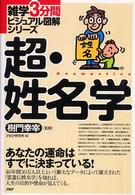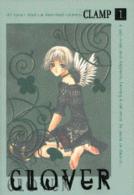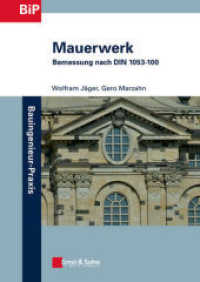- ホーム
- > 洋書
- > ドイツ書
- > Humanities, Arts & Music
- > Linguistics
- > english linguistics
Full Description
This updated, new edition of this book explores the emergence of what the author terms "late modernist freakish aesthetics"- a creative fusion of "high" and "low" themes and forms in relation to distorted bodies. Literary and cinematic texts about "freaks" by Nathanael West, Djuna Barnes, Tod Browning, and Carson McCullers subvert and reinvent modern progress narratives in order to challenge high modernist literary and social ideologies. These works are marked by an acceptance of the dysteleology, anarchy, and degeneration that racist discourses of the late nineteenth and early twentieth centuries associated with racial and ethnic outsiders, particularly Jews. In a period of American culture beset with increasing pressures for social and political conformity and with the threat of fascism from Europe, these late modernist narratives about "freaks" defy oppressive norms and values as they search for an anarchic and transformational creativity.
Contents
Acknowledgments - Introduction - Degeneration, Anti- Semitism, and the Enfreakment of Modernism - Nathanael West's Aspiring Freakish Flâneurs - "Well of Course, I Used to Be Absolutely Gorgeous, Dear": The Female Interviewer as Subject/ Object in Djuna Barnes's Journalism - Heredity, Transvestism, and the Limits of Self- Fashioning in Nightwood - Horror, Melodrama, and Mutable Masculine Identity in Tod Browning's Films - ''This Thing I Long For I Know Not What": Carson McCullers and the Melodrama of the Domesticated Freak - Conclusion: Deviance, Defiance, and the Problem of "Weirdness" - Afterword: The Freakish Flâneur Reconsidered - Bibliography - Index.








